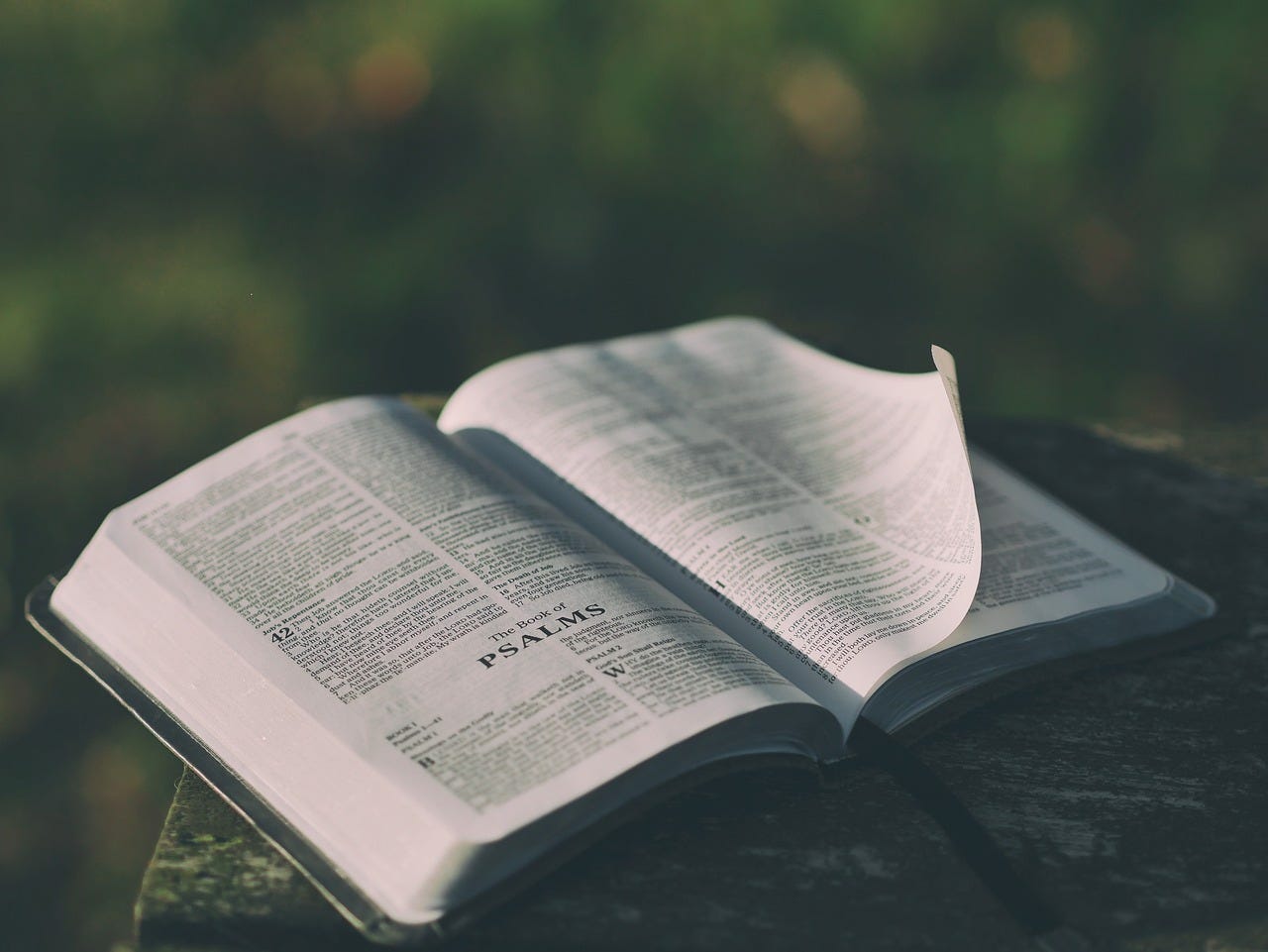We will get three “Trinity” references from the readings for Christmas day in a few weeks. They’re striking in their images of God as Triune:
He shall say of me, “You are my father, my God, the rock, my savior.”
(Psalm 89:27)
For a child is born to us, a son is given us; upon his shoulder dominion rests. They name him Wonder-Counselor, God-Hero, Father-Forever, Prince of Peace.
(Isaiah 9:5)
He saved us through the bath of rebirth and renewal by the Holy Spirit, whom he richly poured out on us through Jesus Christ our savior.
(Titus 3:4-7)
Image by Pexels
While we often concentrate our homage and religious activities on Christmas primarily upon Jesus, the Christ, the Church does not leave to our imagination anything less than the full complexity of three persons in one God. Taken together, which is how we should review scripture anyway, the fullness of God’s Triune persons flies off the pages of both the New and Old Testaments.
Saturday, on the Memorial of St. Ambrose, Isaiah provides a premonition of the Trinity in Chapter 30, verses19-21:
O people of Zion, who dwell in Jerusalem,
no more will you weep;
He will be gracious to you when you cry out,
as soon as he hears he will answer you.
The Lord will give you the bread you need
and the water for which you thirst.
No longer will your Teacher hide himself,
but with your own eyes you shall see your Teacher,
While from behind, a voice shall sound in your ears:
"This is the way; walk in it,"
when you would turn to the right or to the left.
Can you see the three persons? The gracious Father hearing the cries of his people. The Lord who gives us the break we need. He no longer hides himself, but with our own eyes we see the Teacher, Jesus. And, from behind us, the whispering voice of the Holy Spirit telling us “This is the way; walk in it.”
The readings of Advent and the Christmas season focus upon Jesus, but look closely at the connective relationships, the oneness in God’s descriptions. In Psalms, well before Jesus was named by the angel Gabriel, God was known by his Spirit, his Fatherhood, and his upcomnig incarnation as the Savior. The unspoken doctrine of the Trinity is founded in the Old Testament. You can find Father, Son, and Spirit everywhere.
Isaiah calls out the titles of God as counselor (Spirit), Father, and Prince of Peace. The glue in the four titles could easily be God as Hero. The Psalms identify the woven aspects of God within the Chosen People — father, my God, my savior — using the imagery of the 40 years in the desert, “the rock.” Jesus called himself the rock, and conferred the honor to Peter as the little rock, whom upon his Church would be built.
In all these scriptures, God is the same God. His Church, in specific detail, is defined by Jesus to be filled with followers who take their marching orders from the Holy Spirit and walk with the law of truth written on their hearts.
It’s in Titus that the summary of the Trinity takes full shape, revealing that which has been concealed for so long in the Old Testament texts. The Father saved us through the bath of rebirth and renewal by the Holy Spirit, which he richly poured out on us through Jesus Christ our savior.
The threads of Father, Son and Spirit woven into one God purposely are joined hand-in-hand by scripture’s authors. This is not a clean, categorically boxed in doctrine. We do know, though, that the incarnation of Jesus as wholly God and wholly man, strengthens the credibility of the Old Testament’s unparalleled revelations.
What comparison to God placing himself into our world, keeping his unique person as Father and again as Spirit can any humanly contrived god story measure up? The Greeks, like most early history people, rightly conceived of many Gods, attempting to accomplish what in their thinking must be true regarding the complexity of divinity. They all get, however, soap opera portrayals of gods in competition.
Rather than be confused into disbelief over the Trinitarian persons of God, which confusion can easily be justified, God instead asks us to believe that he is who he is. He did create the universe and all that is in it. He did allow us to be free, even to reject him. He did join creation in birth, life, and death. He did conquer death’s inevitability and gift us with the consequences of his resurrection and ascension. He did provide us with intimate access to the Holy Spirit living within us, by gathering his believers together no matter where they may live. He did establish the physical presence of himself in the Eucharist.
More is promised. He will return as the reigning King. There is much more to be revealed. We will be drawn closer and closer to him in all three persons. Our relationships to the Father, the Son, and the Holy Spirit will grow closer to the divine. So close, that we will become more and more like God throughout eternity.
The Old Testament writers knew bits and pieces. We have a tapestry that’s taken further shape, revealing the interplay of the Trinity and our part with him.
There’s so much more …





